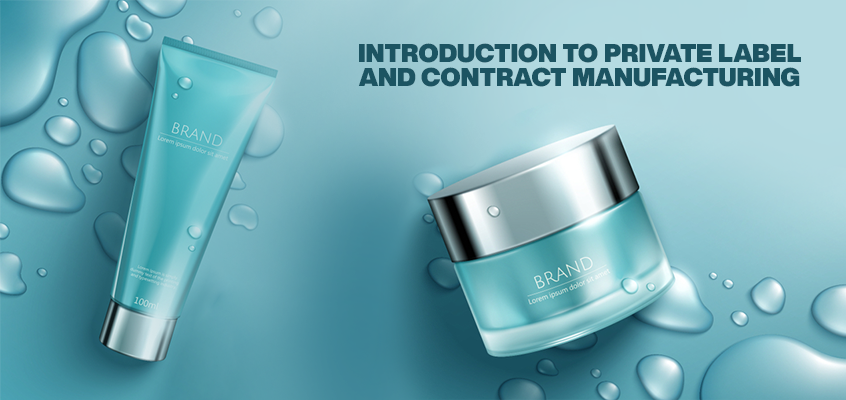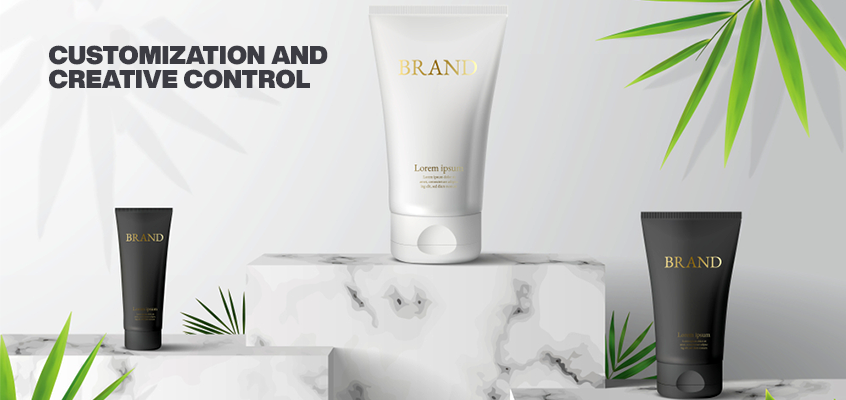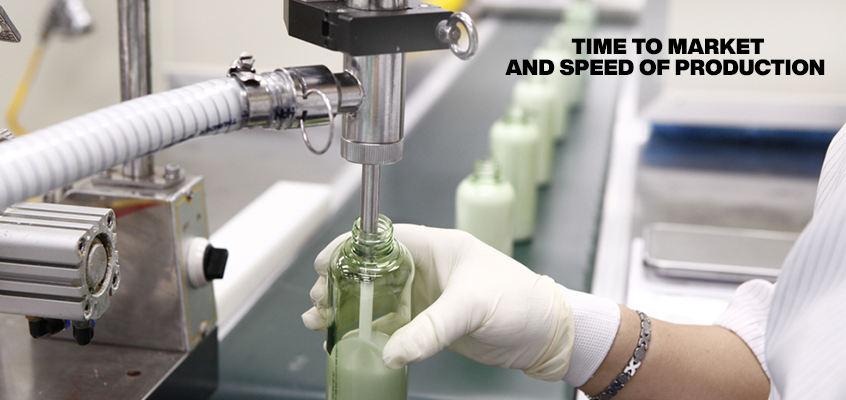Navigating the Cosmetic Industry: Private Label vs. Contract Manufacturing

The beauty and cosmetics sector is a world of limitless opportunities where imagination and innovation rule. But entering this cutthroat market has its own set of difficulties, especially in terms of production. Fortunately, there are two well-known options to consider: contract manufacturing and private label production. To assist you in making an informed choice for your cosmetic endeavor, we will dig into these possibilities and dissect their intricacies, benefits, and downsides in this extensive guide.

Introduction to Private Label and Contract Manufacturing
-
Private Label:
At its most basic level, private label manufacturing entails working with a manufacturer to create items that are made to your specifications and that you can then market and sell under your own brand name. This route gives you a lot of control over branding, product development, and customization. -
Contract Manufacturing:
On the other hand, contract manufacturing means contracting out the complete production process to a specialised manufacturer. They take care of everything, from formulation to packaging, so you can concentrate on branding, marketing, and sales.

Customization and Creative Control
-
Private Label:
One of the main advantages of private label manufacturing is the level of control and customization it offers. You can tailor the formulation, packaging, and branding to align with your brand's identity and target market. This approach is ideal if you have a clear vision for your products. -
Contract Manufacturing:
While contract manufacturing might limit your control over certain aspects of production, it's perfect if you lack the technical expertise or resources to oversee every detail. Specialized manufacturers bring their experience and knowledge to the table, streamlining the production process.

Cost Consideration
-
Private Label:
Creating custom formulations and packaging can incur higher upfront costs. However, these costs can be offset by the potential for higher profit margins, as customers are often willing to pay more for unique products. -
Contract Manufacturing:
Contract manufacturing can be cost-effective, especially if you're producing products on a larger scale. Manufacturers may already have established supply chains and production facilities, reducing overhead costs.

Time to Market and Speed of Production
-
Private Label Manufacturing:
Crafting distinctive formulations and designs may extend the time it takes to bring products to market. If time is of the essence, private label manufacturing might not be the fastest route. -
Contract Manufacturing:
Contract manufacturing significantly accelerates the production timeline. Manufacturers have efficient processes in place, enabling them to swiftly produce your cosmetics and seize market opportunities promptly.

Quality Assurance and Compliance
-
Private Label Manufacturing:
Direct oversight of ingredient quality and production processes ensures your brand maintains a reputation for excellence. However, the responsibility for quality control lies squarely with you. -
Contract Manufacturing:
Reputable contract manufacturers adhere to industry regulations and quality standards. They boast dedicated quality control teams that monitor every step of the production process, guaranteeing product quality and compliance.
Scalability and Growth Potential
-
Private Label:
As your brand grows, scaling up production might require significant investments in infrastructure and resources. This could potentially slow down your expansion plans. -
Contract Manufacturing:
Contract manufacturers are equipped to handle various production volumes. Whether you're starting small or aiming for significant growth, they can adjust production accordingly, supporting your brand's scalability.
Fostering Brand Identity and Long-Term Vision
-
Private Label Manufacturing:
Private label manufacturing empowers you to cultivate a unique brand identity over time. Through exclusive offerings, you can carve out a niche market and foster a devoted customer base. -
Contract Manufacturing:
While contract manufacturing may not provide the same level of brand exclusivity, it excels at facilitating quick market entry and expansion. This approach allows you to establish a presence swiftly.
Conclusion
Choosing between private label and contract manufacturing in the cosmetics industry hinges on your brand's objectives, available resources, and long-term vision. Private label grants unparalleled customization and control, while contract manufacturing expedites production and market entry. Consider aspects such as costs, quality control, and scalability as you navigate this pivotal decision. Ultimately, whether you opt for the artistic freedom of private label or the efficiency of contract manufacturing, both avenues offer potential success in the ever-evolving cosmetics sector.
For more information, check out the following resources:
